Finding Forever Homes for Rescue Hens
You’re about to discover the heartwarming efforts of a small but passionate group dedicated to finding forever homes for rescue hens.
In a world where thousands of hens and roosters are abandoned or mistreated, this article sheds light on the tireless work carried out by individuals committed to giving these birds the loving homes they deserve.
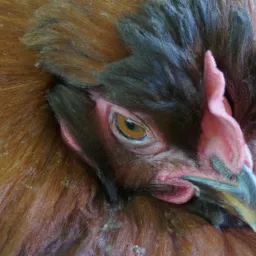
Get ready to uncover the countless stories of redemption and the profound impact these rescues have on both humans and feathered friends alike.
Understanding Rescue Hens
Rescue hens are chickens that have been saved from situations such as factory farming, neglect, or abandonment.
These hens often come from commercial farming operations where they were raised for egg production but are no longer considered productive.
While they may have suffered in their previous living conditions, rescue hens have the potential to live happy and healthy lives when given a chance in a loving home.
Importance of Finding Homes for Rescue Hens
Finding forever homes for rescue hens is crucial for their well-being.
These birds deserve the opportunity to experience a life free from confinement and inhumane treatment, and by providing them with a safe and nurturing environment, you are giving them a second chance at happiness.
Also, by adopting rescue hens, you contribute to reducing the demand for eggs produced in intensive farming practices, supporting the ethical treatment of animals and sustainable agriculture.
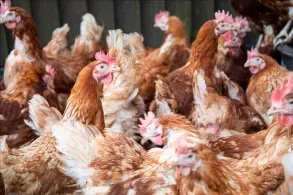
This image is property of chickenrescue.co.uk.
Preparing for the Adoption Process
Before embarking on the adoption process, it’s important to do some research and ensure you are well-prepared to provide the best care for your future rescue hens.
Researching Local Rescue Organizations
Start by researching and identifying local rescue organizations that specialize in hen rescues.
These organizations can provide guidance, support, and valuable information about the available hens for adoption.
Look for reputable organizations with a track record of responsibly rehoming hens and providing ongoing support to adopters.
Understanding Adoption Requirements
Every rescue organization will have its own adoption requirements to ensure the hens are going to suitable homes.
It’s essential to thoroughly understand these requirements and be prepared to meet them.
This may include providing a safe and secure hen house, demonstrating knowledge about hen care, and potentially participating in an adoption screening process.
Setting Up a Suitable Hen House
Creating a suitable hen house is vital to ensure the safety, comfort, and well-being of your rescue hens.
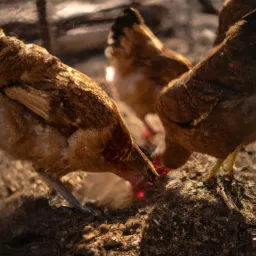
Your hen house should provide adequate space for the number of hens you plan to adopt, offer protection from predators, and feature proper ventilation and nesting areas.
Research and follow guidelines for appropriate coop design, bedding choices, and nesting boxes to create a suitable environment for your new feathered friends.
Meeting the Needs of Rescue Hens
Once you have successfully adopted your rescue hens, it’s important to meet their basic needs to ensure their health and happiness.
Providing a Nutritious Diet
Rescue hens, like all chickens, require a nutritious diet to thrive.
They need access to a balanced diet that includes a combination of grains, vegetables, fruits, and a reliable source of clean water.
Consult with a veterinarian or avian specialist to ensure you are providing the proper nutrients and meeting the specific dietary needs of your hens.
Creating a Safe and Comfortable Environment
To ensure the well-being of your rescue hens, it’s important to create a safe and comfortable environment for them.
This includes protecting them from extreme weather conditions, providing adequate shelter, and ensuring their living space is clean and sanitary.
Regularly clean their coop, change bedding, and ensure proper ventilation to prevent the buildup of harmful bacteria.
Addressing Potential Health Issues
Rescue hens may have experienced neglect or poor living conditions before being adopted, which can leave them vulnerable to various health issues.
Regularly monitor your hens for signs of illness, and consult with a veterinarian experienced in avian care if you notice any abnormalities.
Regular health check-ups, vaccinations, and preventive measures such as deworming can significantly contribute to the well-being of your rescue hens.
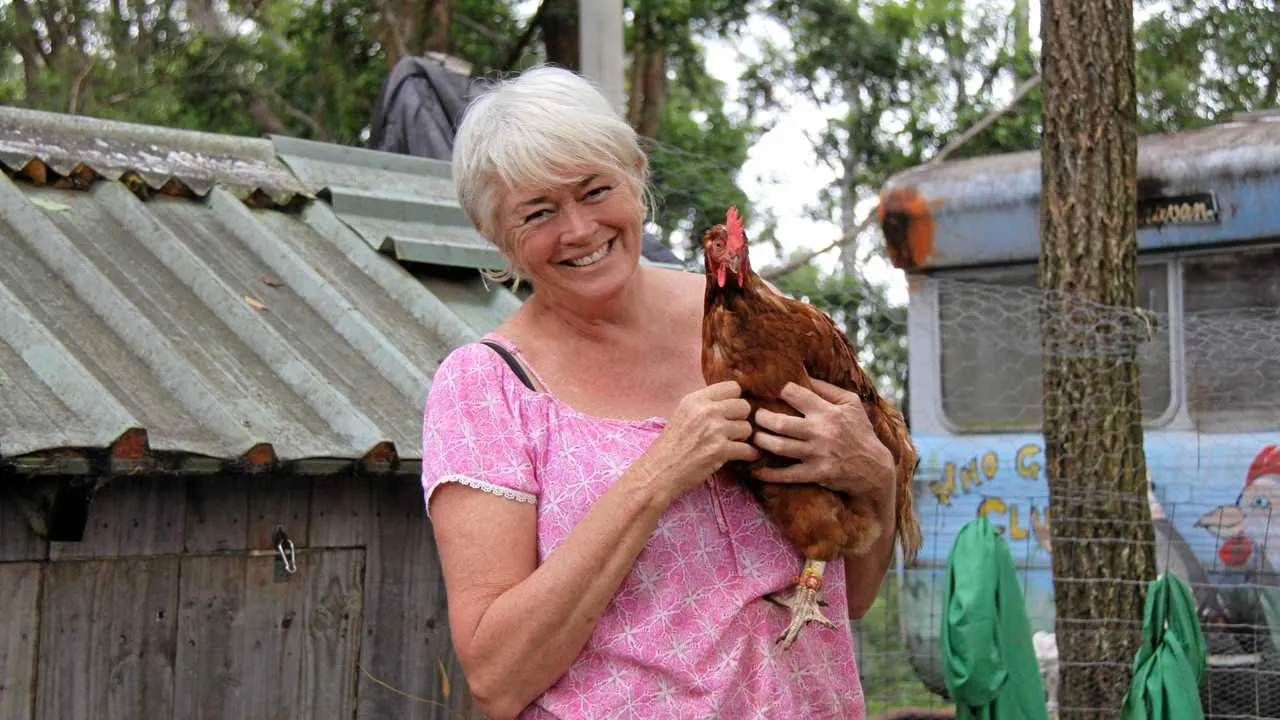
This image is property of content.api.news.
Educating Yourself About Rescue Hens
To provide the best care for your rescue hens, it’s essential to educate yourself about their specific needs, behaviors, and potential challenges.
Learning About Different Hen Breeds
Different hen breeds have varying characteristics, including size, temperament, and egg-laying capabilities.
Familiarize yourself with the different breeds and their specific requirements to better understand how to meet their needs effectively.
See also Backyard Chicken Coop Ideas: How to Build a Cheap and Easy DIY Coop
This knowledge will help you create an environment that caters to the specific breed of your rescue hens.
Understanding Their Behaviors
Rescue hens, like all chickens, have their own set of behaviors and social dynamics. Observing and understanding their behaviors will allow you to better address their needs and provide a suitable environment.
Learn about their natural instincts, such as foraging and roosting, and provide opportunities for them to engage in these behaviors in their new home.
Recognizing Common Challenges
Rescue hens may face certain challenges as they transition to their new home. Some hens may be more skittish or require more time and patience to fully acclimate to their new environment.
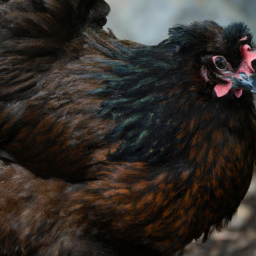
Understanding these challenges and being prepared to address them can help create a smooth and successful integration process.
Benefits of Adopting Rescue Hens
Adopting rescue hens comes with numerous benefits, not just for the hens themselves but also for you and the broader community.
Helping to Save Lives
By adopting rescue hens, you are directly contributing to saving lives and providing a sanctuary for animals that have been through difficult circumstances.
This act of compassion and kindness makes a significant impact on the lives of these birds, allowing them to experience love and care they may have never known before.
Contributing to Sustainable Agriculture
Adopting rescue hens aligns with the principles of sustainable agriculture. By giving these animals a loving home, you support a more ethical and environmentally-friendly approach to food production.
Also, you reduce the demand for eggs produced by intensive farming practices, which can have a detrimental impact on the welfare of hens in commercial operations.
Forming a Special Bond
One of the most rewarding aspects of adopting rescue hens is the opportunity to form a special bond with these intelligent and fascinating creatures.
Over time, you will witness their unique personalities and develop a meaningful connection that adds joy and companionship to your life.
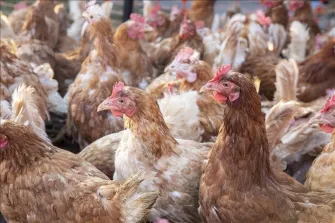
This image is property of www.chad.co.uk.
Making a Connection with Rescue Organizations
To begin the process of adopting rescue hens, it’s crucial to connect with local rescue organizations that facilitate adoptions.
Attending Adoption Events
Many rescue organizations host adoption events where you can meet the hens available for adoption.
Attending these events allows you to interact with the hens, ask questions, and learn more about their individual stories and needs.
This firsthand experience can help you make an informed decision about which hens are the best fit for your home.
Connecting with Local Farmers
Local farmers and agricultural communities often have insights and connections to rescue organizations or may even rescue hens themselves.
Engaging with farmers who prioritize animal welfare can provide valuable guidance and opportunities for adoption.
Building relationships with these individuals can also benefit your ongoing hen care, as they can share their experiences and expertise with you.
Reaching Out to Hen Rescue Centers
Hen rescue centers often have a wealth of knowledge and resources to guide you through the adoption process.
Reach out to these centers to express your interest in adopting rescue hens and inquire about available hens.
They can provide information about their adoption process, offer advice on hen care, and potentially connect you with other resources or individuals in their network.
Integrating Rescue Hens into Your Existing Flock
If you already have an existing flock of chickens, introducing rescue hens requires careful consideration and a gradual integration process.
Introducing New Hens Slowly
When introducing rescue hens to an existing flock, it’s essential to do so gradually to minimize stress and potential conflicts.
Start by keeping the new hens in a separate but adjacent space, allowing them to see and hear each other without physical contact.
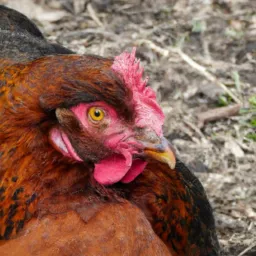
Over time, gradually introduce them to one another, closely monitoring their interactions.
Monitoring Their Interactions
Keep a close eye on the interactions between the new hens and the existing flock during the integration process.
Some pecking order disputes or minor squabbles are normal as they establish their hierarchy.
However, excessive aggression or bullying may require intervention or additional separation to ensure the safety and well-being of all chickens involved.
Providing Adequate Space
Rescue hens, like all chickens, require space to roam, forage, exercise, and establish their territory.
See also Guide to Adopting Rescue Hens
Providing adequate space for both the existing and new hens is crucial to prevent overcrowding, stress, and potential conflicts.
Make sure your hen house and outdoor space can accommodate the needs of your entire flock, providing ample space for each hen to establish their own areas.
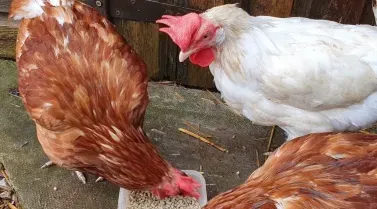
This image is property of pentagonpets.com.
Creating a Positive Environment for Roosters
If you decide to adopt rescue roosters, it’s important to understand their unique needs and how to create a positive environment for them.
Understanding the Role of Roosters
Roosters play a crucial role in the social dynamics of a flock. They act as protectors, alerting the hens to potential danger and establishing a hierarchy within the group.
However, it’s important to note that not all municipalities allow roosters due to noise concerns, so be sure to familiarize yourself with local regulations and restrictions.
Avoiding Aggression Issues
Roosters may exhibit aggressive behavior towards other roosters or humans if not properly socialized or if there is an imbalance in the flock’s dynamics.
Providing sufficient space and resources, such as nesting boxes, food, and water, can help reduce aggression.
Proper socialization from a young age and ongoing positive reinforcement training can also play a significant role in shaping their behavior.
Offering Appropriate Socialization
Socialization is crucial for the well-being of rescue roosters. Spending time with them and providing positive human interaction helps establish trust and build a bond.
Regular handling, offering treats, and engaging in activities that mimic natural behaviors, such as foraging, can promote their overall mental and emotional well-being.
Supporting Hen Welfare Advocacy
Beyond providing a loving home for rescue hens, there are additional ways to support hen welfare advocacy efforts and promote responsible hen ownership within your community.
Promoting Responsible Hen Ownership
Spread awareness about responsible hen ownership by sharing your knowledge and experiences with others.
Encourage proper hen care, including adequate shelter, appropriate feed, regular veterinary care, and overall compassionate treatment. This can help create a network of informed and caring hen owners in your area.
Raising Awareness about Hen Rescue
Educate others about the importance of rescuing hens and the realities of the commercial egg industry.
By sharing stories and information about rescue hens, you can help dispel misconceptions and inspire others to consider adopting hens rather than supporting intensive farming practices.

Supporting Legislative Efforts
Stay informed about legislative efforts related to animal welfare and hen protection in your area.
Support organizations and initiatives that advocate for improved living conditions and legal protections for all hens.
By participating in petitions, contacting local representatives, or attending public hearings, you can contribute to positive change and better living conditions for not only rescue hens but all hens.
Maintaining Lifelong Care for Rescue Hens
Adopting rescue hens is a lifelong commitment, and ensuring their ongoing health and happiness requires continued effort and care.
Continuing Veterinary Care
Regular veterinary check-ups and ongoing preventive care are essential to maintain the well-being of your rescue hens.
Consult with a veterinarian experienced in avian care to develop a long-term healthcare plan, including vaccinations, parasite control, and routine examinations.
Regularly monitor your hens for any signs of illness or distress and seek veterinary attention promptly as needed.
Renewing Commitment to Hen Welfare
Revisit your commitment to hen welfare on an ongoing basis. Continuously educate yourself about advancements in hen care, nutrition, and behavioral research.
Stay connected with rescue organizations, local farmers, and other hen enthusiasts to stay informed about best practices and new insights.
By renewing your commitment to hen welfare, you ensure your rescue hens receive the best possible care throughout their lives.
Seeking Support from the Hen Community
Joining online forums, local poultry clubs, or hen enthusiast groups can provide a valuable support network for you and your rescue hens.
Sharing experiences, seeking advice, and connecting with others who share your passion for hen care can offer support and guidance throughout your hen ownership journey.
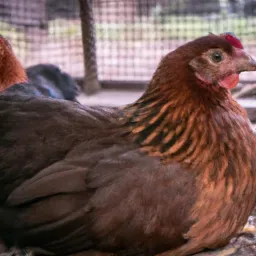
Adopting rescue hens is a rewarding and meaningful journey that benefits not only the hens themselves but also the broader community and the principles of sustainable and ethical agriculture.
By educating yourself, providing a loving home, and promoting responsible hen ownership, you can contribute to the well-being of these remarkable creatures and help create a more compassionate and humane world for all animals.
